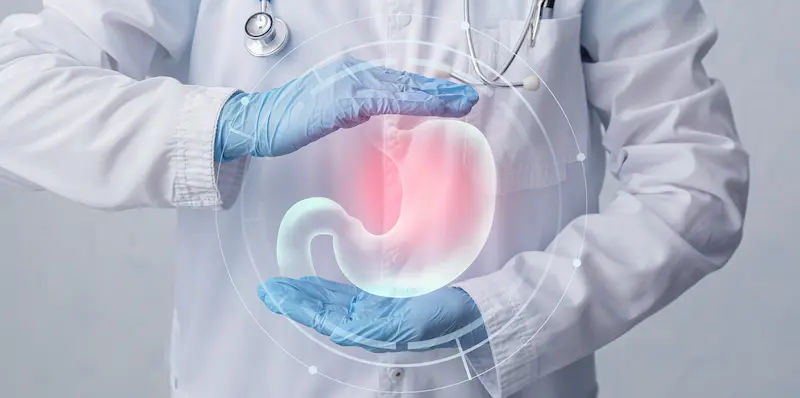Cyclopam Tablet: Uses, Dosage, Benefits, and Side Effects
Learn Cyclopam uses, dosage, benefits, side effects, and safety tips. Understand this stomach pain medicine and when to see a doctor.


Introduction
Stomach cramps and abdominal discomfort are common, and many people reach for a trusted stomach pain medicine to get relief. Cyclopam is one such option often recommended for crampy belly pain. Understanding Cyclopam uses, what’s inside it, how it works, the right way to take it, and possible side effects can help you use it safely and effectively. This guide explains everything in simple, clear language so you can make informed choices and know when to seek medical help.
What Is Cyclopam?
Cyclopam is a combination medicine commonly used to relieve abdominal cramps and pain. It typically contains:
- Dicyclomine: An antispasmodic (anticholinergic) that relaxes the smooth muscles of the gut, easing spasms and cramps.
- Paracetamol (acetaminophen): A pain reliever and fever reducer that helps reduce pain associated with cramping.
Together, these ingredients target both the spasm (the cause of the cramp) and the pain. Because formulations can vary by brand and country, always check your package insert or ask a pharmacist to confirm the exact ingredients and strengths in your product.
How Cyclopam Works?
Here’s how cyclopam works:
- Dicyclomine reduces abnormal contractions of the intestinal muscles (spasms). This can be helpful in conditions like irritable bowel syndrome (IBS) and other spasm-related abdominal pains.
- Paracetamol helps lower pain signals in the body, making cramps and associated aches feel less intense.
This dual action is why Cyclopam is often chosen as a quick stomach pain medicine for crampy pain.
Cyclopam Uses
If you’re searching for “Cyclopam uses”, here are the most common reasons a clinician may recommend or prescribe it:
- Abdominal cramps due to intestinal spasms, such as those that can occur in IBS
- Crampy stomach pain related to gas, bloating, or indigestion
- Menstrual cramps (period pain)
- Spasm-associated pain in the gastrointestinal tract
Important notes:
- Abdominal pain has many causes. Cyclopam targets cramp-related pain; it will not treat infections, ulcers, appendicitis, gallstones, or other surgical causes of pain.
- Antispasmodics like dicyclomine may not be appropriate for some types of diarrhoea (especially infectious diarrhoea). Speak with a clinician if you have fever, bloody stools, or persistent symptoms.
Benefits of Cyclopam
Here are the benefits of cyclopam:
- Rapid cramp relief: The antispasmodic component relaxes smooth muscle, easing cramps.
- Pain control: Paracetamol reduces pain intensity without irritating the stomach like some nonsteroidal anti-inflammatory drugs (NSAIDs) can.
- Convenient: Two actions in a single tablet may reduce the need to take multiple medicines.
Who Should Not Use Cyclopam?
Because Cyclopam typically contains dicyclomine and paracetamol, some people should avoid it or use it only under close medical guidance.
Avoid dicyclomine-containing products if you have:
- Narrow-angle glaucoma
- Myasthenia gravis
- Severe ulcerative colitis or toxic megacolon
- Obstructive gastrointestinal disease (such as pyloric stenosis)
- Obstructive uropathy (urinary blockage), or difficulty urinating (e.g., due to enlarged prostate)
- Reflux oesophagitis (GERD), which can worsen with anticholinergics
- Known allergy to dicyclomine
Use paracetamol with caution or avoid if you have:
- Severe liver disease, chronic heavy alcohol use, or take other medicines that affect the liver
- A known allergy to paracetamol
Age and pregnancy/breastfeeding considerations:
- Infants: Dicyclomine is contraindicated in infants younger than six months.
- Children: Only use paediatric formulations if specifically advised by a paediatrician.
- Pregnancy: Discuss risks and benefits with your doctor. Paracetamol is commonly used during pregnancy when needed, at recommended doses; dicyclomine should be used only if clearly necessary and directed by a clinician.
- Breastfeeding: Dicyclomine may pass into breast milk and can be risky for infants; avoid unless your healthcare provider advises otherwise.
Consult Top Specialists
Dosage and How to Take Cyclopam
Always follow your doctor’s advice and the instructions on your package insert. Do not exceed the recommended dose. Many Cyclopam tablets combine dicyclomine with paracetamol. Because paracetamol is included, be careful not to take other paracetamol-containing products at the same time.
General safety tips for dosing:
- Maximum daily paracetamol: Do not exceed 3,000 mg per day from all sources without medical advice; the absolute upper limit for adults is 4,000 mg/day, but many experts advise staying at or below 3,000 mg when possible.
- Timing with food: You can take Cyclopam with food or after meals to reduce stomach upset.
Alcohol: Avoid alcohol while taking paracetamol due to increased risk of liver damage.
If you miss a dose:
- Take it when you remember unless it’s almost time for the next dose. Do not double up.
- If you are unsure about your correct dose, ask your pharmacist or doctor. Because different countries and brands may use different strengths, personalised guidance is safest.
Possible Side Effects
Not everyone experiences side effects, but it helps to know what to watch for.
Common side effects (often related to dicyclomine’s anticholinergic effect):
- Dry mouth, thirst
- Drowsiness, dizziness, light-headedness
- Blurred vision
- Constipation
- Nausea
- Difficulty urinating
Less common but serious effects - seek medical help urgently:
- Signs of an allergic reaction: rash, hives, swelling of the face/lips/tongue, trouble breathing
- Confusion, agitation, or hallucinations (anticholinergic effects)
- Rapid heartbeat
- Severe constipation or abdominal swelling
- Eye pain or vision changes (possible angle-closure glaucoma attack)
- Signs of liver injury (from paracetamol): unusual fatigue, loss of appetite, persistent nausea/vomiting, dark urine, yellowing of skin or eyes (jaundice), upper right abdominal pain
Drug Interactions and Precautions
- Do not combine with other paracetamol-containing medicines (for example, some cold/flu or pain remedies). Accidental overdose is common.
- Avoid alcohol due to liver risk with paracetamol.
- Use caution with other drugs that cause drowsiness or have anticholinergic effects, such as some antihistamines (e.g., diphenhydramine), tricyclic antidepressants, certain antipsychotics, and other antispasmodics.
- If you take warfarin, high or prolonged paracetamol use can affect INR—talk to your healthcare provider.
- Heat sensitivity: Anticholinergics can decrease sweating; avoid overheating and stay hydrated, especially in hot weather.
When to See a Doctor?
Stomach pain medicine can help short-term cramps. However, seek medical care if you have:
- Severe, persistent, or worsening pain
- Fever, chills, or repeated vomiting
- Blood in stool or black, tarry stools
- Unexplained weight loss or loss of appetite
- Yellowing of the eyes or skin
- Pain localised to one area (e.g., right lower abdomen), which could signal appendicitis or another urgent problem
- Recent abdominal injury
- You are pregnant, breastfeeding, elderly, or have chronic illnesses and are unsure if Cyclopam is safe for you
Practical Tips for Safe Use
- Read the label to confirm the active ingredients and strengths.
- Track your total daily paracetamol from all products.
- Stay hydrated and consider gentle heat (like a warm compress) for cramp relief.
- For IBS-type cramps, keeping a food/symptom diary may help identify triggers.
- Do not share prescription medicines and keep all medicines out of children’s reach.
Cyclopam vs Other Stomach Pain Medicine Options
- Antispasmodics (like dicyclomine): Best for crampy, spasm-related pain.
- Paracetamol alone: Good general pain relief with a gentler stomach profile than many NSAIDs.
- NSAIDs (e.g., ibuprofen): Helpful for period cramps and inflammation, but may irritate the stomach and are not ideal for everyone.
- Lifestyle measures: Hydration, light meals, avoiding trigger foods, heat therapy, gentle movement, and stress management may also help.
- Ask a healthcare professional which option fits your symptoms and health history.
Consult Top Specialists
Consult Top Specialists

Dr. Chethan T L
General Physician/ Internal Medicine Specialist
5 Years • MBBS, MD, DNB (General Medicine)
Bengaluru
Apollo Medical Center, Marathahalli, Bengaluru

Dr. Jatin Yegurla
Gastroenterology/gi Medicine Specialist
11 Years • MD (PGI), DM (AIIMS Delhi), FAGIE (AIIMS Delhi), ESEGH (UK), Gold Medalist
Hyderabad
Apollo Hospitals Jubilee Hills, Hyderabad
(675+ Patients)

Dr. Amit Pandita
Gastroenterology/gi Medicine Specialist
10 Years • MBBS. MD (INTERNAL MEDICINE) DrNB (GASTROENTEROLOGY AND HEPATOLOGY)
Delhi
Apollo Hospitals Indraprastha, Delhi

Dr Piyush Vishwakarma
Gastroenterology/gi Medicine Specialist
11 Years • MBBS, MD, DrNB,
Delhi
Apollo Hospitals Indraprastha, Delhi

Dr. Sunil Kaul
General Surgeon
30 Years • MBBS, MS, FICS, FIMSA, FMAS
Delhi
Apollo Hospitals Indraprastha, Delhi
(25+ Patients)
Consult Top Specialists

Dr. Chethan T L
General Physician/ Internal Medicine Specialist
5 Years • MBBS, MD, DNB (General Medicine)
Bengaluru
Apollo Medical Center, Marathahalli, Bengaluru

Dr. Jatin Yegurla
Gastroenterology/gi Medicine Specialist
11 Years • MD (PGI), DM (AIIMS Delhi), FAGIE (AIIMS Delhi), ESEGH (UK), Gold Medalist
Hyderabad
Apollo Hospitals Jubilee Hills, Hyderabad
(675+ Patients)

Dr. Amit Pandita
Gastroenterology/gi Medicine Specialist
10 Years • MBBS. MD (INTERNAL MEDICINE) DrNB (GASTROENTEROLOGY AND HEPATOLOGY)
Delhi
Apollo Hospitals Indraprastha, Delhi

Dr Piyush Vishwakarma
Gastroenterology/gi Medicine Specialist
11 Years • MBBS, MD, DrNB,
Delhi
Apollo Hospitals Indraprastha, Delhi

Dr. Sunil Kaul
General Surgeon
30 Years • MBBS, MS, FICS, FIMSA, FMAS
Delhi
Apollo Hospitals Indraprastha, Delhi
(25+ Patients)
More articles from Stomach Pain
Frequently Asked Questions
What is Cyclopam used for?
Cyclopam is commonly used for crampy abdominal pain caused by intestinal spasms (such as IBS-type cramps), gas-related cramps, and menstrual cramps. It combines a gut antispasmodic with a pain reliever.
How long does Cyclopam take to work?
Many people start to feel relief within an hour, though the timing varies by person, dose, and what you’ve eaten. If pain persists or worsens, seek medical advice.
Can I take Cyclopam with other painkillers?
Avoid combining it with other acetaminophen-containing products to prevent overdose. Before adding NSAIDs (like ibuprofen) or other medicines that cause drowsiness or have anticholinergic effects, ask your doctor or pharmacist.
Is Cyclopam safe during pregnancy or breastfeeding?
Talk to your healthcare provider first. Acetaminophen is commonly used during pregnancy at recommended doses. Dicyclomine should be used only if clearly needed, and it is generally not recommended while breastfeeding because it can pass into breast milk and may be risky for infants.
Can children take Cyclopam?
Do not give dicyclomine to infants under 6 months. For older children, only use pediatric formulations if specifically advised by a pediatrician. Always follow professional dosing guidance.



